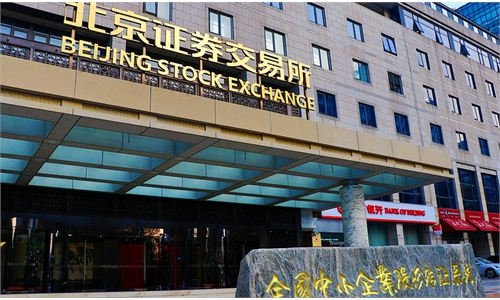
Workers weld at a workshop of an automobile manufacturing enterprise in Qingzhou city, East China's Shandong Province. Photo: Xinhua
China's Ministry of Industry and Information Technology (MIIT) issued a total of 15 measures to further stabilize growth and adjust structure of small and medium-sized enterprises (SMEs), Xinhua News Agency reported on Sunday.
To further stabilize the growth and expectations, the ministry rolled out seven initiatives including financing support, expanding demand as well as ensuring supply and stabilizing prices of bulk raw materials, vowing to stimulate the vitality and confidence of market players.
For instance, the MIIT proposed to promote the consumption of green intelligent home appliance and expand the presence of new-energy vehicles and green building materials in rural market.
In order to enhance the core competitiveness of SMEs, the department issued eight measures to adjust the structure and strengthen their ability. According to the document, by the end of 2023, the country will cultivate more than 150,000 innovative SMEs and more than 10,000 "little giant" enterprises that are engaged in manufacturing, specialize in a niche market and boast cutting-edge technologies.
The MIIT vowed to give full play to the Beijing Stock Exchange and the National Fund for SME Development to increase direct financing support for high-quality SMEs. Moreover, it will promote digital transformation of these firms as well as increase the support of talent for enterprises.
The latest policy adds to a flurry of muscular government support for SMEs - a significant force in stabilizing employment and promoting the country's private economy - amid China's push for innovation and technology self-sufficiency, experts said.
During the more than three-year outbreak, the central government has implemented a variety of preferential policy measures for SMEs, mainly through fiscal and financial support means such as tax and fee reductions.
At the Central Economic Work Conference at the end of 2022, which mapped policy priorities for 2023, the country required financial institutions to increase support for SMEs, scientific and technological innovation as well as green development, and to promote a steady decline in the cost of enterprise financing and personal credit costs.

